Content
Among flower growers there are many amateurs who prefer to grow various varieties of petunias. Today this is possible without problems. Every year, breeders delight with new amazing varieties of petunias. The variety of colors, shapes, sizes of the flower allows you to create amazing "ornaments" on your flower beds. Blooming petunias look great both in a single planting and among other flowers.
The sensation of 2016 was the petunia Spherica f1.
Description
This is the newest series of petunias, in which breeders have managed to combine the excellent qualities of the premium groups already available.
- The plant is compact, with a large number of branches, reaching a height of up to 30 cm. During the season, the petunia of the Spherica f1 variety grows in diameter up to 30 cm. The compactness of the bush is not lost, the shoots are not stretched out.
- The shoots of the Spherica petunia are strong, tolerate transportation well, do not break off during transplantation.
- The color of the flowers is very diverse, you can choose for every taste. The flowers are quite large, up to 12 cm in diameter. Among the new series of petunias Spherica 100 f1 there are double versions. Flowering continues for a long time. A bush of petunia almost all summer in bright fragrant flowers. Just look at this photo!
Petunia Spherica is considered a versatile variety, so it feels great in a pots, unique borders are created with it. The compact ball retains its shape throughout the season, as in the photo below.
Growing seedlings
The thing is that petunia Spherica f1 is a hybrid. That is why experienced florists are advised to purchase seeds in the store. A large selection of petunia seeds of the Spherika variety is offered by the Biotechnics online store.
Flower seeds are very small, it is difficult to work with such seed material. They go on sale in a dragee form, the Spherica seeds are clearly visible in the photo.
To obtain high-quality seedlings, seeds must be sown in boxes in late February - early March.
Before planting, the soil is prepared. It should be nutritious, loose, moisture-permeable. The soil is poured with boiling water with dissolved potassium permanganate (pink).
Seeds are scattered over the surface of the cooled soil, not sprinkled. From above, the container is covered with glass to create a greenhouse effect. As a breeding ground, you can use cake dishes with a lockable lid. Sowing as the topsoil dries up, sprinkle with warm water.
The container is placed in a warm place, the temperature is maintained from +18 to +20 degrees. As a rule, the first shoots of Spherica petunia appear in 2-3 weeks.
Spherica's sprouts are weak, they need a lot of light and warmth. For successful development, seedlings need to be watered in a timely manner.
It is possible to sow seeds of Spherica not only in containers, but also grow in a snail, in peat tablets. Many growers talk about such methods in their reviews.
For reproduction of the plant, you can use the vegetative method if the flower has wintered on the window. Healthy shoots are chosen, rooted in water, then planted in cups. The vegetative method allows you to preserve 100% parental qualities. The photo shows how Spherica petunia is propagated by shoots.
Dive, landing on the street
As soon as 3-4 real leaves appear, spherical petunia seedlings are transplanted. There should be enough humus in the soil, pH 5.5-6. In more acidic soils, Spherica petunia slows down development.
For seedlings, a temperature of +17 degrees is enough.Cups are exposed to a light window, but direct sunlight should not burn through the glass of the plant.
The most successful seedlings are considered to be at the age of three months. It has a powerful root system, it takes root more easily. With proper care, a blooming Spherical is planted in the ground.
Take a look at the photo and try to imagine what the ball of blooming petunias will be like in summer!
Video about making interesting pots:
Care rules
It is not difficult to take care of the Spherica petunia, the reviews of our readers confirm this. Therefore, if a person is just starting to deal with flowers, he can safely grow petunias. For beginners, we will tell you about flower care.
Watering
The plant can be grown in flowerpots, on the balcony, in the ground.
Irrigation features will depend on the location:
- flowerpots with Spherica petunia need to be watered twice a day;
- on a flower bed, once every two days is enough;
- on the balcony, depending on where it goes. If on the south side, then every day. From the north - as the topsoil dries up.
You can water it with rainwater or from a water pump. The water should be warm. In heavy rain, the flowerpots should be removed under a canopy.
Lighting
Petunias are light-loving plants. With a lack of light, the leaves fade, abundant flowering is not observed. In addition, the shoots are elongated, the Spherica loses its spherical shape.
Temperature
The plant is hardy, it feels good even at +7 degrees. You should know that the more true leaves on the petunia, the more vitality. Can be planted in flower beds, flowerpots. The flowering of the plant is long, often, even after slight frosts, the flowering on the flower beds does not stop.
How to feed
The flower needs feeding, especially if it is planted in a pots. Thanks to fertilization, petunias receive vitality, bloom profusely, for a long time.
The first time Spherica is fed 7 days after disembarkation. Then every week. As feeding petunias you can use organic fertilizers, mullein.
Top dressing continues until the end of summer. Then the bush will be strong, with a lot of flowers.
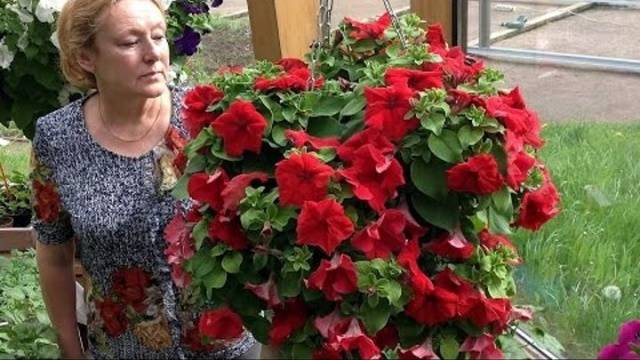
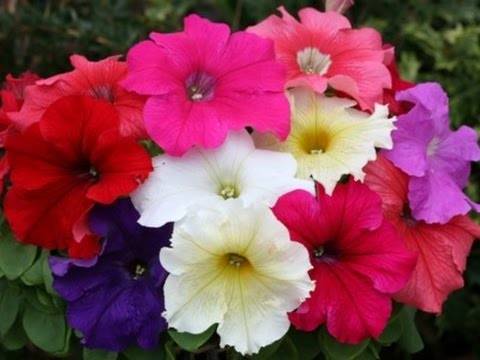
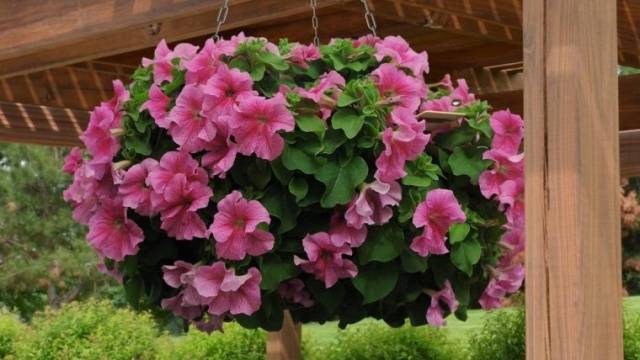
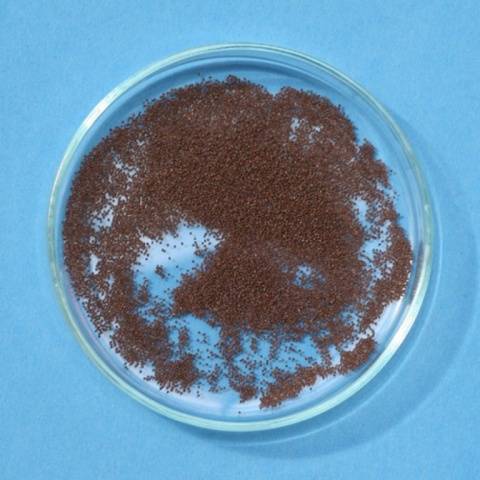
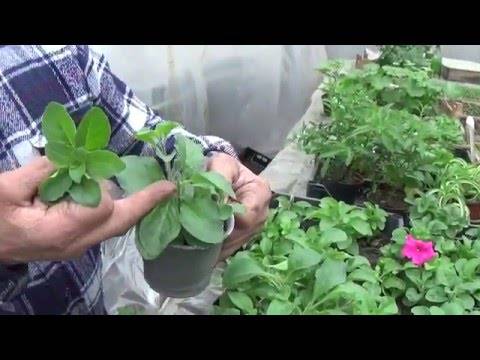
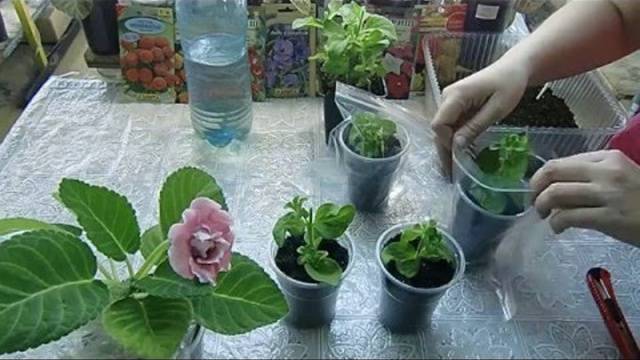
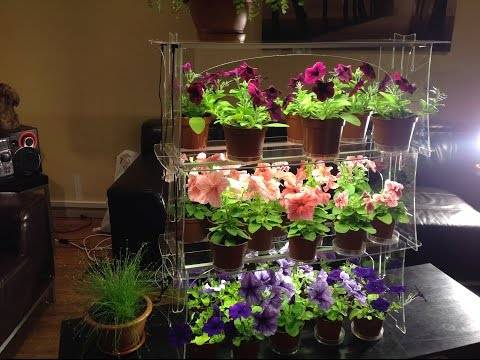
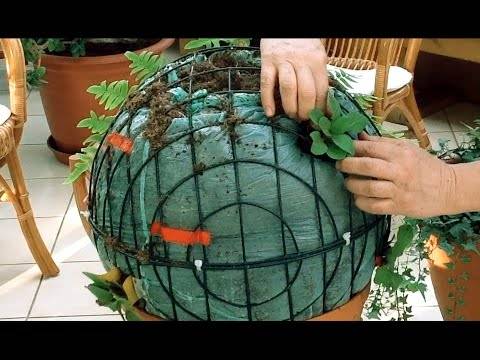
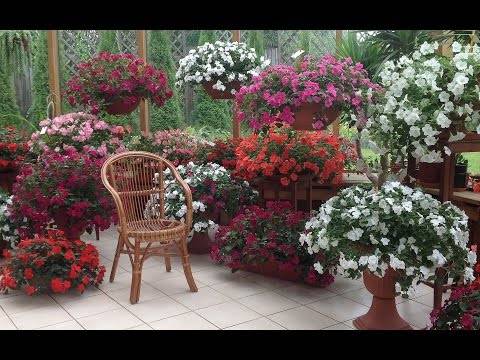

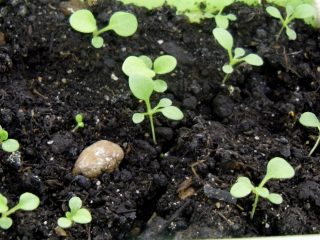

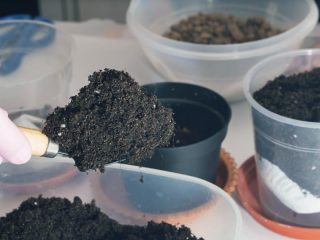
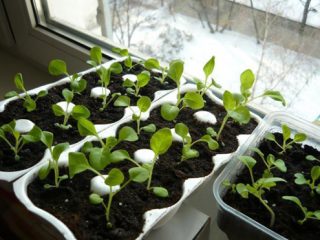


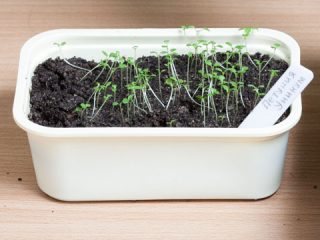
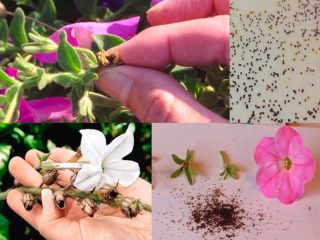
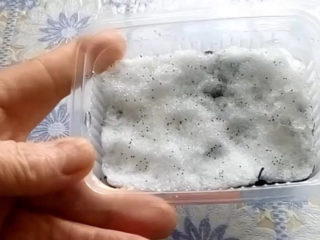
In a white sphere, the size of the flower corresponds to the declared one, large, but for some reason the flower does not have a turgor, pink holds and red with a white center also holds a turgor, and in white it is like a wet rag. Maybe someone will give an answer!
Good afternoon, dear Tamara!
The state of turgor directly depends on the soil. There can be several reasons for the loss of turgor.
The first is that Spherica is very demanding on the composition of the soil. With a lack of mineral nutrients, the elasticity of flowers is immediately lost.
The second reason is that petunias are critical to excess and lack of moisture. The slightest underfilling or overflow immediately affects the appearance of flowers.
And further. Loss of turgor may indicate that the root system of petunias begins to rot.
We advise you to transplant the flower to another location. When transplanting, pay attention to the roots. If there are signs of root disease, take urgent action.